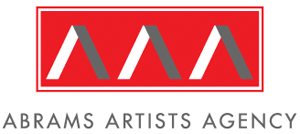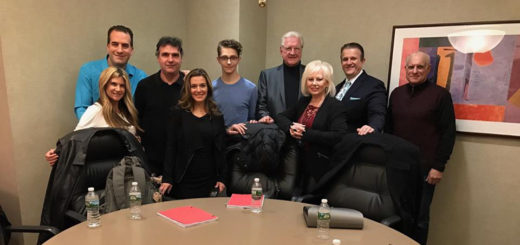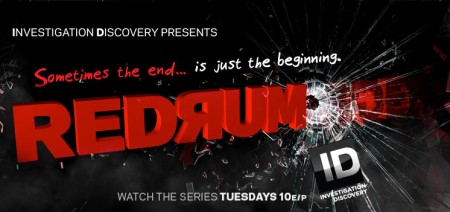Q & A: Mark Measures, Abrams Artists Agency
Mark Measures is the head of Commercial & Voice-Over Division for Abrams Artists Agency in Los Angeles.
Recently, Mark shared his thoughts with me on the role of reputation-whether it be an actor’s, agent’s or agency’s, expanding his division’s current roster and his expectations about taking on individual clients. We also spoke briefly about the results of the “Generals in July” experiment.This experiment was conducted exclusively through Twitter, wherein agents from 4 disparate Los Angeles based commercial agencies each gave out 10 general meetings per week to their followers during the month of July.
In addition to helping pioneer this rare (and can we say many actor’s dream) experiment, Mark Measures maintains an extensive roster of commercial clients including Emmy-nominated Jane Lynch and “Weeds” and series regular Elizabeth Perkins and a large cache of voice-over clients such as Blake Clark of “Toy Story 3” and Tammin Sursok of TV’s “Pretty Little Liars”. Mark also maintains a small list of across-the-board clients, stemming primarily from Reality TV, including LuAnn de Lesseps (aka Countess Luann) of “The Real Housewives of New York” and Damian Whitewood of “Dancing with the Stars” fame.
Let’s start off we by talking a little about you, your background, the way your division functions, and what you find is most appealing about being an agent?
Mark Measures: I started as a theatre major back in school and I spent a few years out on the road as a touring production manger for different traveling shows – plays, musicals and magic shows, and then went to work at a small agency that at the time was called RichField Freed. That agency merged with an agency called TGI. They’re now currently known as BBR [or] Brady Brannon & Rich. I left there after 5 years of doing On-camera & Voice and went to an agency called Special Artist Agency. I was there for 6 years and then I came over here to Abrams to run the Commercial Division…about 13 years ago.
Abrams is a bi-coastal agency across-the-board. I run the Commercial Division in Los Angeles. We’re unique, I think, in the sense that…well, besides ourselves and Cunningham…I don’t think there’s anybody else with divisions as large on the two coasts. There is over ~30 of us doing Television and Commercial on the two coasts, between LA and New York…and that’s On-Camera, Voice, Celebrity, Endorsements, Marketing, Licensing, Personal Appearances, selling Media Tours – all those kind of things, all combined. My particular division runs differently than I think any other in the country, because we’ve constantly worked to change the model – to find other ways for our actors to make money, and other and better ways for our clients to get hired than the typical ‘submit/audition/book’ process.
How does that work? Can you give me some examples of how you find these opportunities you are talking about?
I absolutely would if [this wasn’t] a public forum.
On that thought then, are there specific tools that agents generally use? For example, I know Casting Directors go through their various websites whether it be Actor’s Access or LA Casting or things like that. Are there similar tools for agents?
Mark Measures: We’re using those same tools as far as just the day-to-day process of submitting. We have developed a lot of in-house tools and databases and methods that we use as an agency to expand our reach and to expand the length and depth of work that our actors can do. You know, with the change in the economy, with the advent of…for us in LA, not so much for you guys in New York, but for us in LA…the Internet casting process, [that] has pretty much opened the candy story for the Casting Director. In the old days [agents] would submit pictures in envelopes and Casting Directors would have to go through those envelopes and open the packages of the agents that they wanted to see. So they would go and grab the top 10 or 15 agencies first before they opened the rest of the pictures. Now you just click a button and it opens everybody. So there [are] 5,000 and 6,000 people getting submitted for certain jobs.
With that said, how does reputation play into the world of a Commercial Agent? I mean the one thing that I keep learning the more that I get into acting and the more people that I speak to it’s “reputation is king”…whether it’s online, word of mouth, etc. So how does that factor in your world today?
Mark Measures: It still does factor in, because ultimately…and this is not to cast dispersions on some of my competition…but the agents are better at the better agencies. We’re better at what we do. We’re better trained because of the pedigree that we have at the agency – the people that work there, the people that have trained the people below them. The top talent is still attracted to the top agency.
A lot of my competitors and smaller agencies are working on non-union and a lot of crappy stuff [and] making terrible deals because they have to. That’s the only way they can keep their lights on. We do union jobs at our agency. We negotiate from a very hard-line position. We make better deals for our clients than a lot of people have out there. And that’s the nature of being the biggest gorilla in the game for so long – you know, not at just Abrams, but all of our competitors…the Cunningham’s, and the SBV’s, and in New York it would be Paradigm and Buchwald – those are two agencies that don’t happen to exist on the west coast commercially but they certainly do on the east coast – and [the big] agencies are able to have the strength.
[For example] you may be at a small agency and you may be getting work but you are going to start seeing your competition on TV and going, “Well, I didn’t get in for that and I didn’t get in for that and I didn’t get in for that…I must be at the wrong place”, and you’re going to funnel up. That is because when a Casting Director has a last minute audition they still call those top agents that they trust, that they know are attractive to really good talent.
[On the other hand] you may be the gem at your agency. Let’s say you’re the diamond in all the coal at your agency, so Casting Directors may call for you. But, they may not call for a lot of other people. So at least at our agency [the Casting Directors will] call and say, “Who do you have? I need somebody for this”, and I can pitch an unknown because my taste in talent has proven, over the 22 years that I’ve been doing this, to be very good. [So the thought is,] “If they’re at Abrams, they must be very good”.
I noticed that in addition to your Voiceover and Commercial clients, you maintain a small list of theatrical clients stemming primarily from Reality TV. Is that correct?
Mark Measures: I’m primarily a Commercial and Voiceover agent. [But for] Reality TV stars…yes. We have them across-the-board and I do everything for them. Here I run the Commercial, Voiceover, Reality and Choreography Dance Division. Those all fall under that realm. I spend a preponderance of my time in the trenches of the Voiceover world, as an agent I [wear that hat] on a daily basis. By the same token I’ll then take off that hat and then put on my hat to make an on-camera deal for somebody like Carl Weathers, and then take that hat off and put on another hat to make a contract for Randy Fenoli for “Say Yes to the Dress”, then take that hat off and book Maksim Chmerkovskiy to go choreography Chelsea Clinton’s wedding.
What types of factors go into your decision to expand your roster, whether it be Reality TV or Voiceover, etc?
Mark Measures: The only real conscious thought that goes into expanding our roster is when we look at our list and realize, “Hey, we have a lack of ‘x’”. Like we did last year, we realized we had a lack of Asian-American actors. So we contacted a gentleman by the name of Tim Dang over at the East West Players – it’s an Asian-American theatre company here in Los Angeles – he’s a former client, and he put out the word…so we got picture submissions. We just realized that we need young Hispanic men. So, that’s our current thing. That’s the only conscious effort to expand the list in any major way. Other than that, we’re just looking for people we think are going to work. There is no real rhyme or reason.
So it partly based on connection you might have with somebody?
Mark Measures: You know…as I’ve said, it’s about, “Are you going to make me a million dollars”? Any agent that says, “I can’t represent you”, regardless of what excuse they use basically is saying to you, “I don’t see a million dollars”.
Speaking of money, I’ve been doing a lot of reading about “Reputation Capital”. It seems to be a term that advertisers are using these days – talking about reputation as a form of social currency. I was wondering would that factor in at all in your decision to take a person on? I know generally you are not taking on the newbie actor, but if you do take someone newer on, would you look at their online presence?
Mark Measures: No. It is a factor that plays into celebrities, as a new actor, no. Well, I say that and yes, we did have a young comedian that came in. He was getting a little bit of fame and so he wanted those kind of campaigns…but for the most part it’s more an issue with celebrity clients than it is with new actors.
I was thinking more in terms of…if you know someone has a significant following, would that play into your decision to take them on? However, maybe that’s a better question for a boutique agency.
Mark Measures: But, it does figure in. As I have pointed out on Twitter and other places, it does start to figure in to the deal making process as we’re starting to make some of these deals because the advertiser now asks, “What is their media? Do they have Twitter? How many followers? Do the have Facebook? How many friends? Do they have MySpace? How many people?”. So, it is becoming an issue for the advertisers.
Very interesting as it definitely affects the actor because part of the job is now figuring the balance of professionalism versus having your personal life on the web. Speaking about the web and Twitter, I would love to hear about the “Generals in July” which started as a result of a lively conversation between you (as @commeagent) and the anonymous @Actorwithachip, and resulted in a small group of LA-based commercial agents giving out general meetings to 10 Twitter followers each week during the month of July. Can you bring me up to speed a bit as to why Agents first moved away from generals? And what your experience has been during this exercise?
Mark Measures: I don’t believe that agents moved away from generals. I don’t believe that agents really ever had generals. I think that agents had people that they were interested in meeting for representation. They didn’t just randomly meet people ‘because’. So, Casting Directors are really the ones who moved away from general meetings. And again, I don’t really think they’ve moved away. You just have to have an agent or representation that is powerful enough to get you in the door to take a general meeting. For an agent there is no real point to a general meeting. If I’m not interested in you, what’s the point of a general meeting? It’s great for you…you get to meet an agent and get information, but what am I getting out of that deal? Especially the way I did it for this particular experiment. I just took the first 10 people and met them, which meant that what I [was] doing is a complete and utter crap-shoot. I didn’t go through. I didn’t weed them out. I didn’t look for union status, as some of my competitors did in this same experiment. So, I just randomly picked 10 people and I sat down with them. It would be like if you went into Starbucks and said, “just put some water in there and some coffee grinds, and let’s see what happens”, and you know eventually people would stop coming into your Starbucks because you didn’t have a recipe for success.
But, this isn’t the first time that you offered general meetings through Twitter. That’s how I got my meeting with you… it was your birthday. I also know you’ve randomly selected others, like your 2025th follower…and how has that been?
Mark Measures: It was not bad. And I’ll tell you, the ones that I’ve done a specific number on…for some reason – I’m sure there is no rhyme or reason to this, in all honesty – have been better than the 40 that I met on the generals by mass amounts. I have no idea why. In fact, I did sign one from one of my birthday meetings…and I have another one that’s coming back. So, I’ve had more success with those for some reason and I’m not sure why. I think it’s just dumb luck.
Do you have takeaways from these general meetings that you would be willing to share?
Mark Measures: Well, I think there is a time and place…there is a time in your career line when you’re ready to meet with somebody like Abrams, and most these people were not there. And that just comes from experience and being there and having had meetings and having had experience enough to walk in and be able to handle yourself correctly in a meeting of this nature.
Can you tell me what the meetings were like? What the format was?
Mark Measures: We just sat. We just sat and talked. No big secret. You know, they came in. I didn’t have anybody read for me because I don’t have people read for me, even in the normal meetings that people get set up to meet me. So we just sat down, I got to know them, their personality. They got to ask me the questions that they wanted. I gave everybody their full time. I tried not to cut anybody off. I let everybody get all their questions out.
Awesome. Well, I’m sure people walked away much more informed, at the very least having had one big meeting out of the way. I guess I would end on this question…is there something you wish more actors asked or did anywhere along the process, whether it be getting to know you for the first time or down line in building a concrete relationship? Is there some advice you could share?
Mark Measures: I wish more actors did their homework. I believe, and I’ve stated this before, that 99.9% of the actors out there have a “will to fail”. And that is something you can’t control in a meeting. [For example] I had one actor in these generals get sick, so he didn’t make it the week he was scheduled. Then, I scheduled him another week and he was late, and he came in with a handwritten resume. You can’t possibly come in and think you are going to compete in my agency with that kind of a situation. That’s just… not doing your homework.









